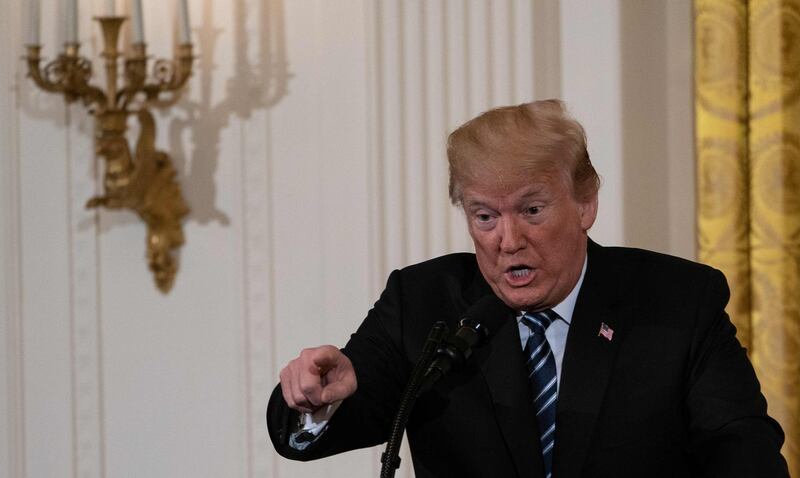Iran’s economy is expected to slow this year as oil exports and foreign investment inflows ebb after the US withdrawal from the nuclear agreement and subsequent expected re-imposition of sanctions on the country, according to BMI Research.
“Already-limited foreign investment inflows will be further discouraged by elevated political uncertainty and risks of US penalties and reputational damage,” said the report by BMI Research, part of the Fitch Group.
BMI Research downgraded its Iranian real GDP growth forecast to 3.1 per cent in 2018 and 0.8 per cent in 2019, from 4.3 per cent and 4.5 per cent previously, following President Donald Trump’s decision to end US participation in the nuclear deal that came into effect in 2016.
Iran is likely to experience depreciatory pressures on the rial and rising inflation as a result of lower foreign currency inflows that will constrain domestic investment and consumption.
US sanctions are also likely to cause a drop in Iranian oil exports by around 500,000 barrels per day from late 2018, after having averaged 2.5 million bpd in 2017, BMI Research said.
Iran is home to the world’s largest reserves of gas and is the Middle East’s third-largest oil producer. When some US-European sanctions on Iran were lifted in 2016, it managed to reinstate its production capacity to pre-sanctions levels and boost its exports to Europe and Asia.
But President Trump’s withdrawal from the agreement is set to cause Iranian economic growth to decelerate. Barely a fortnight since the decision was announced, French oil major Total said this week it may have to sell its stake in a $4.8 billion Iranian gas deal to avoid being penalised by the US sanctions.
Total has a 50.1 per cent stake in the 20-year South Pars project, alongside China National Petroleum Corporation, which holds a 30 per cent and Iran’s Petropars which has a 19.9 per cent stake.
________________
Read more:
[ Total may need to offload Iran gas stake amid looming US sanctions, analysts ]
[ Exclusive: Total to apply for waiver if US withdraws from Iran deal ]
[ US Imposes sanctions on Iran banking head ]
________________
Total said in a statement on Wednesday it would “unwind all related operations” before the 180-day period for companies to stop engaging with Iranian entities, unless it obtained an exemption from US authorities. The possible exit would come as a blow to Iran’s slowly expanding energy industry.
Meanwhile, general elevated political and security risks will act as major deterrents to many other existing or prospective foreign investors in Iran, as they seek to avoid sanctions-related penalties and reputational damage, BMI Research said.
“European governments may take steps to encourage and/or protect domestic businesses with exposure to Iran from US sanctions. These steps, however, are unlikely to prove sufficient to convince firms that also have exposure to the US to maintain or expand their Iranian presence,” the report said.






